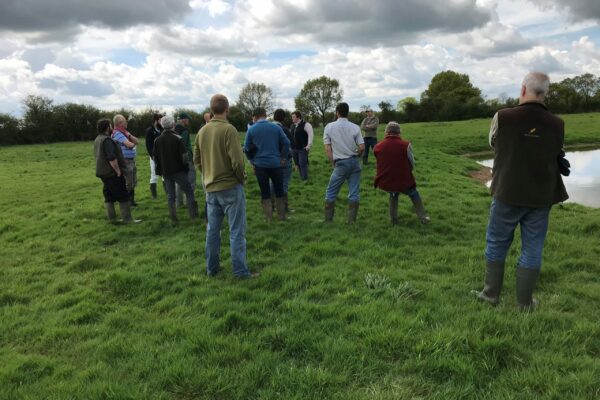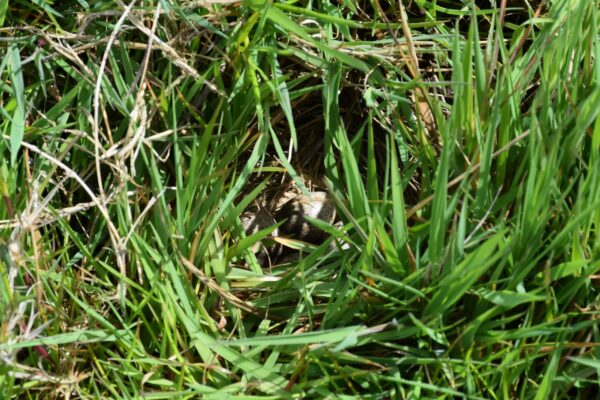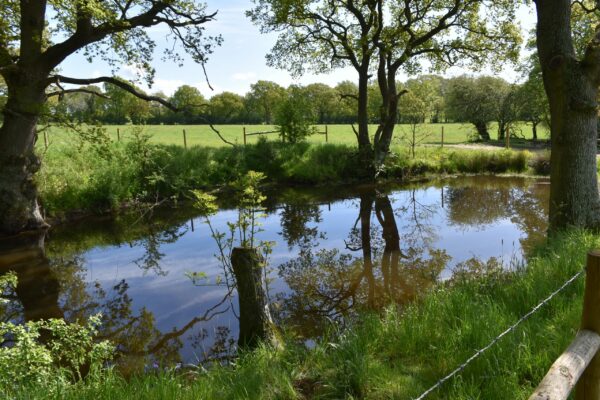
On the 18th May Habitat Regeneration hosted a farm walk at Will Fraser’s family home, Coldharbour Farm.
This was a joint event run with the Kent Wildlife Trust and Stour Countryside Partnership, where guest speakers included Charlie Chantler from Natural England and Sarah Harrington-James from Stour Countryside Partnership. The talks provided a useful insight on how we can look to integrate farming and ecology in a more harmonious manner.
We looked at five pond restorations and one pond creation which we had carried out on the farm, to increase habitat for Great Crested Newts. The pond dips revealed a plethora of life which had established in less than two years, including a great diving beetle and great diving beetle larvae, mayfly larvae, damselfly larvae, water louse, backswimmers, water boatmen, freshwater shrimp, toad tadpoles and most excitingly a Great Crested Newt Larvae! This was a great testament to how effective site selection and quality delivery can result in real ecological benefit, in an amazingly short period of time.
We then walked the farm looking at how a Countryside Stewardship agreement was in the process of being delivered, which includes approximately 40 acres of very low intensity grassland, 7.5 acres of wild bird feed cover, 3.75 acres of wildflower pollinator mix and 1.2 tonnes of supplementary winter bird feeding. Whilst walking a field of low intensity grassland we also came across a skylark nest, which also demonstrates the benefit of integrating these lower intensity areas into a conventional farming landscape.
The walk finished on a talk from Charlie Chantler on how the new Sustainable Farming Incentive Trial Schemes and Environmental Land Management Schemes are starting to take shape and how they might be adopted to improve farm viability and ecology.
The event was a great success, with local farmers and land agents attending, along with guests from Natural England, Kent Wildlife Trust, Stour Countryside Partnership and the Forestry Commission. It was fantastic to get land managers, farmers, agents and conservation organisations together to discuss these issues on the ground and to apply a practical spin to them. These constructive discussions are critical to achieving realistic and effective landscape conservation, whether this is through government lead stewardship schemes or private offset and enhancement projects.








